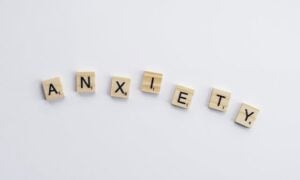How After‑School Programs Build Strong Study Habits

As a parent, you’re always looking for ways to help your child succeed. You’re there for the scraped knees, the celebratory report cards, and everything in between. But what about that tricky time between the last school bell and when you get home from work? For many families, this is where a high-quality after school program can make all the difference, not just in providing a safe space, but in actively building the foundation for a lifetime of academic success.
These programs are so much more than just a place for kids to hang out. They are dynamic environments designed to reinforce what’s learned in the classroom, but in a more relaxed and engaging way. Think of it as a bridge between school and home, where learning is seamlessly woven into fun and enriching activities. It’s in this unique setting that children begin to develop strong study habits, often without even realizing it. They learn to see learning not as a chore, but as a natural and exciting part of their day.
More Than Just Homework Help
While many after-school programs do offer homework assistance, their benefits extend far beyond that. They provide a holistic approach to a child’s development, nurturing them academically, socially, and emotionally. This comprehensive support system is what truly sets the stage for creating confident, capable, and thriving students.
Here are some of the key ways after-school programs help in building those all-important study habits:
- Academic Support & Enrichment: These programs provide a structured time for homework, with staff on hand to offer guidance and support. This immediate reinforcement of classroom concepts is invaluable. Moreover, they often feature enrichment activities in areas like STEM, literacy, and the arts, which can spark new interests and a genuine love for learning.
- Teach Time Management Skills: One of the most practical skills a child can learn is how to manage their time effectively. After-school programs introduce a routine that helps students learn to prioritize tasks, from finishing their homework to participating in group activities. This skill is a game-changer when it comes to managing workloads as they get older.
- Use Active Learning Techniques: Forget boring drills and rote memorization. The best programs utilize active learning techniques where kids learn by doing. This could be anything from a hands-on science experiment to a creative writing workshop. This approach not only makes learning more enjoyable but also helps with long-term retention.
Fostering Well-Rounded Individuals
Strong study habits are about more than just hitting the books. They’re also about developing the social and emotional skills needed to navigate the challenges of school and life. This is another area where after-school programs shine.
- Social Skills and Friendship Building: In a relaxed and supervised setting, children have the opportunity to interact with their peers, developing crucial social skills like communication, teamwork, and conflict resolution. As noted by the YMCA of Kettle Moraine, these programs are instrumental in fostering social and emotional growth.
- Creative Exploration and New Interests: After-school programs are a fantastic place for children to explore new hobbies and uncover hidden talents. Whether it’s painting, coding, or learning a new sport, these activities boost creativity and confidence, which can have a positive ripple effect on their academic performance.
- Physical & Mental Well-Being: A healthy body and mind are essential for effective learning. After-school programs recognize this and incorporate physical activities and mindfulness exercises to help children burn off energy, reduce stress, and improve their focus.
A Safe and Supportive Environment
Ultimately, the magic of after-school programs lies in the environment they create. They offer a safe and supervised space where children feel comfortable taking risks, asking questions, and being themselves. This sense of security is the fertile ground in which strong study habits can take root and grow. As highlighted by Communities In Schools of Jacksonville, after-school sessions are designed to provide a positive study environment where students can thrive.
By providing a unique blend of academic support, personal development, and a nurturing community, after-school programs do so much more than just fill a gap in the day. They empower children with the skills, confidence, and habits they need to excel in school and beyond.






